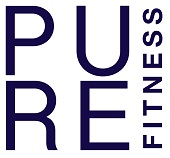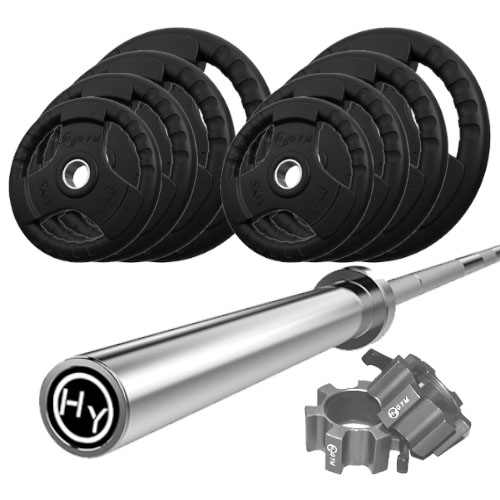Are you curious about the recommended daily protein intake in the UK? In this article, we will explore the guidelines set by health experts to ensure you are getting the right amount of this essential nutrient in your diet. Join us as we uncover the importance of protein and discover how much you should be consuming each day to maintain a healthy and balanced lifestyle. So, let’s jump right in and find out what the UK guidelines for daily protein intake are!
Table of Contents
ToggleBenefits of Protein
Improved muscle growth and repair
Protein is essential for muscle growth and repair. When you engage in physical activities such as strength training or resistance exercises, your muscles experience microscopic damage. Protein helps repair and rebuild these damaged muscle fibers, leading to increased muscle strength and size. By ensuring an adequate protein intake, you can optimize your muscle growth and enhance your athletic performance.
Optimal immune function
Protein plays a crucial role in maintaining a strong and healthy immune system. Antibodies, which are proteins, help your body fight off infections and diseases. Additionally, proteins are involved in the production of immune cells, such as T-cells and B-cells, which are vital for immune response. By consuming enough protein, you can keep your immune system functioning at its best and protect yourself from illnesses.
Increased satiety and weight management
Protein is known to promote feelings of fullness and satiety, making it an excellent nutrient for weight management. High-protein foods take longer to digest, keeping you feeling satisfied for longer periods and reducing the chances of overeating. Incorporating protein into your meals and snacks can help regulate your appetite and support your weight loss or weight maintenance goals.
Enhanced bone health
Protein is not only essential for muscle health but also for maintaining strong and healthy bones. Collagen, a protein found in bones, provides them with structure and strength. A sufficient protein intake is crucial for maintaining proper bone density and reducing the risk of conditions such as osteoporosis. By including protein-rich foods in your diet, you can support your bone health and prevent age-related bone loss.
Recommended Daily Amount
General protein recommendations
The UK guidelines recommend that adults consume 0.75 grams of protein per kilogram of body weight per day. This means that if you weigh 70 kilograms, you should aim to consume approximately 52.5 grams of protein each day. However, this recommendation may vary depending on individual factors such as age, gender, physical activity level, and underlying health conditions.
Specific protein recommendations
Certain individuals may have higher protein requirements. For example, athletes or those engaging in intense physical training may need additional protein to support muscle repair and growth. Pregnant and breastfeeding women also require extra protein to support the growth and development of their baby. It is always best to consult with a healthcare professional or a registered dietitian to determine your specific protein needs based on your unique circumstances.
Factors Affecting Protein Needs
Age
Protein requirements can vary depending on your age. The UK guidelines recommend higher protein intake for older adults, as aging can lead to a decrease in muscle mass and increase the risk of muscle wasting. Consuming adequate protein becomes crucial for maintaining muscle strength and overall health in older individuals.
Gender
Gender can also influence protein needs. Men typically have higher muscle mass than women and may require more protein to support muscle growth and maintenance. However, it is essential to note that individual factors such as physical activity level and overall goals also play a significant role in determining protein requirements.
Physical activity level
Engaging in regular physical activity and exercise increases protein requirements. Athletes and individuals involved in intense training or endurance activities need more protein to support muscle repair, enhance recovery, and optimize performance. It is important to adjust your protein intake based on your activity level and goals to ensure proper support for your body’s needs.
Medical conditions
Certain medical conditions or situations may increase protein needs. For example, individuals recovering from surgery or injury may require higher protein intake to aid in healing and tissue repair. People with chronic illnesses or conditions like diabetes may also benefit from higher protein intake to manage blood sugar levels and support overall health. It is essential to consult with a healthcare professional to determine the appropriate protein intake for specific medical conditions.
Protein Sources
Animal-based sources
Animal-based sources are excellent protein options, as they provide all essential amino acids required by the body. Examples of animal-based protein sources include lean meats, poultry, fish, dairy products, and eggs. These sources are not only rich in protein but also often contain other essential nutrients like vitamins and minerals.
Plant-based sources
Plant-based sources can provide ample protein as well, though they may not contain all essential amino acids. Legumes, such as beans, lentils, and chickpeas, are excellent sources of plant-based protein. Other options include tofu, tempeh, quinoa, nuts, seeds, and some whole grains. Combining different plant-based protein sources can help ensure you obtain all necessary amino acids.
Combining protein sources
If you follow a vegetarian or vegan diet, it is important to combine different plant-based protein sources to obtain all essential amino acids. For example, pairing legumes with whole grains or nuts with seeds can create a complete protein profile. By combining complementary protein sources, you can ensure you are meeting your protein needs even on a vegetarian or vegan diet.
Protein Intake and Weight Loss
Protein’s role in weight loss
Protein plays a significant role in weight loss. It promotes satiety, helping you feel fuller for longer and reducing cravings. Additionally, protein has a higher thermic effect compared to carbohydrates or fats, meaning it requires more energy for digestion and absorption. This increased energy expenditure can contribute to a modest increase in metabolism, supporting weight loss efforts.
Recommended protein intake for weight loss
When aiming for weight loss, it is generally recommended to increase protein intake. The UK guidelines suggest that consuming 1-1.2 grams of protein per kilogram of body weight per day may help support weight loss efforts. This higher protein intake can help preserve lean muscle mass while promoting fat loss. However, individual needs may vary, so it is best to consult with a healthcare professional or registered dietitian to determine the appropriate protein intake for your weight loss journey.
Protein Intake and Physical Performance
Protein’s impact on athletic performance
Protein consumption is vital for optimizing physical performance, especially for athletes and individuals engaging in intense training. Adequate protein intake supports muscle recovery and repair, enhances strength development, and improves overall athletic performance. It also aids in reducing muscle soreness and post-exercise fatigue, allowing for quicker recovery between training sessions.
Recommended protein intake for athletes
Athletes may require higher protein intake compared to the general population to support their training needs. The International Society of Sports Nutrition suggests a protein intake of 1.4-2.0 grams per kilogram of body weight for athletes. This higher protein intake helps provide the necessary building blocks for muscle growth and repair, allowing athletes to maximize their performance potential. Consulting with a sports dietitian can help establish personalized protein recommendations based on specific sport, training intensity, and individual goals.
Protein Supplements
When to consider protein supplements
In some cases, protein supplements may be beneficial to ensure adequate protein intake. They can be convenient options to supplement your diet if you struggle to meet your protein needs through whole foods alone. Protein supplements can be particularly useful for those with higher protein requirements, such as athletes, individuals with muscle-wasting conditions, or those on a vegetarian or vegan diet. However, it is important to note that supplements should not replace a balanced diet and should be used as a complement to healthy eating habits.
Types of protein supplements
There are various types of protein supplements available, including whey protein, casein protein, soy protein, and pea protein, among others. Whey protein is the most common and is derived from milk. It is a complete protein source and is easily digested. Casein protein is also derived from milk and provides a slow-releasing protein source. Soy protein and pea protein are plant-based options suitable for vegetarian or vegan individuals. The choice of protein supplement depends on dietary preferences, allergen considerations, and individual goals.
Other Considerations
Protein quality and amino acid profile
Protein quality is determined by the amino acid profile and digestibility. Animal-based protein sources usually have higher protein quality as they provide all essential amino acids and are easily digestible. Plant-based protein sources may require combining different sources to obtain all necessary amino acids, ensuring a complete protein profile. It is important to choose a variety of protein sources to ensure a well-rounded amino acid intake.
Timing and distribution of protein intake
While meeting your daily protein requirement is essential, the timing and distribution of protein intake can also impact its effectiveness. Consuming protein evenly throughout the day, rather than consuming a large amount in one sitting, may be more beneficial for muscle protein synthesis and absorption. Additionally, consuming protein shortly after exercise can help promote muscle recovery and growth.
Potential Risks and Side Effects
Kidney damage
There is a common misconception that a high-protein diet can cause kidney damage, but this is not supported by scientific evidence. In healthy individuals with no existing kidney conditions, a high-protein diet is generally safe and does not lead to kidney damage. However, individuals with pre-existing kidney diseases may need to limit their protein intake. It is always important to consult with a healthcare professional if you have concerns about your kidney health.
Digestive issues
Some people may experience digestive issues, such as bloating or stomach discomfort, when consuming high amounts of protein. This can be due to factors such as low fiber intake, insufficient water intake, or individual sensitivities. Gradually increasing protein intake and ensuring adequate fiber and hydration levels can help alleviate these digestive issues.
Allergies
Protein supplements derived from milk, such as whey or casein protein, may cause allergies or intolerances in individuals with milk allergies or lactose intolerance. It is important to read labels and choose protein supplements that are free from allergens if you have specific dietary restrictions or allergies. Plant-based protein powders, such as soy or pea protein, can be suitable alternatives for individuals with milk allergies.
Conclusion
Meeting your daily protein needs is essential for overall health and well-being. Protein provides numerous benefits, including improved muscle growth and repair, optimal immune function, increased satiety, and enhanced bone health. The recommended daily amount of protein varies depending on age, gender, physical activity level, and medical conditions. Animal-based and plant-based protein sources offer different options to meet your protein needs, and combining different sources can ensure a well-rounded amino acid profile. Protein intake is also associated with weight loss and physical performance, with specific recommendations for individuals striving to achieve these goals. Protein supplements can be considered in certain situations but should not replace a balanced diet. Considering factors such as protein quality, timing of intake, and potential risks and side effects is important when incorporating protein into your daily routine. Consulting a healthcare professional or registered dietitian can provide personalized guidance and support in meeting your protein needs.







